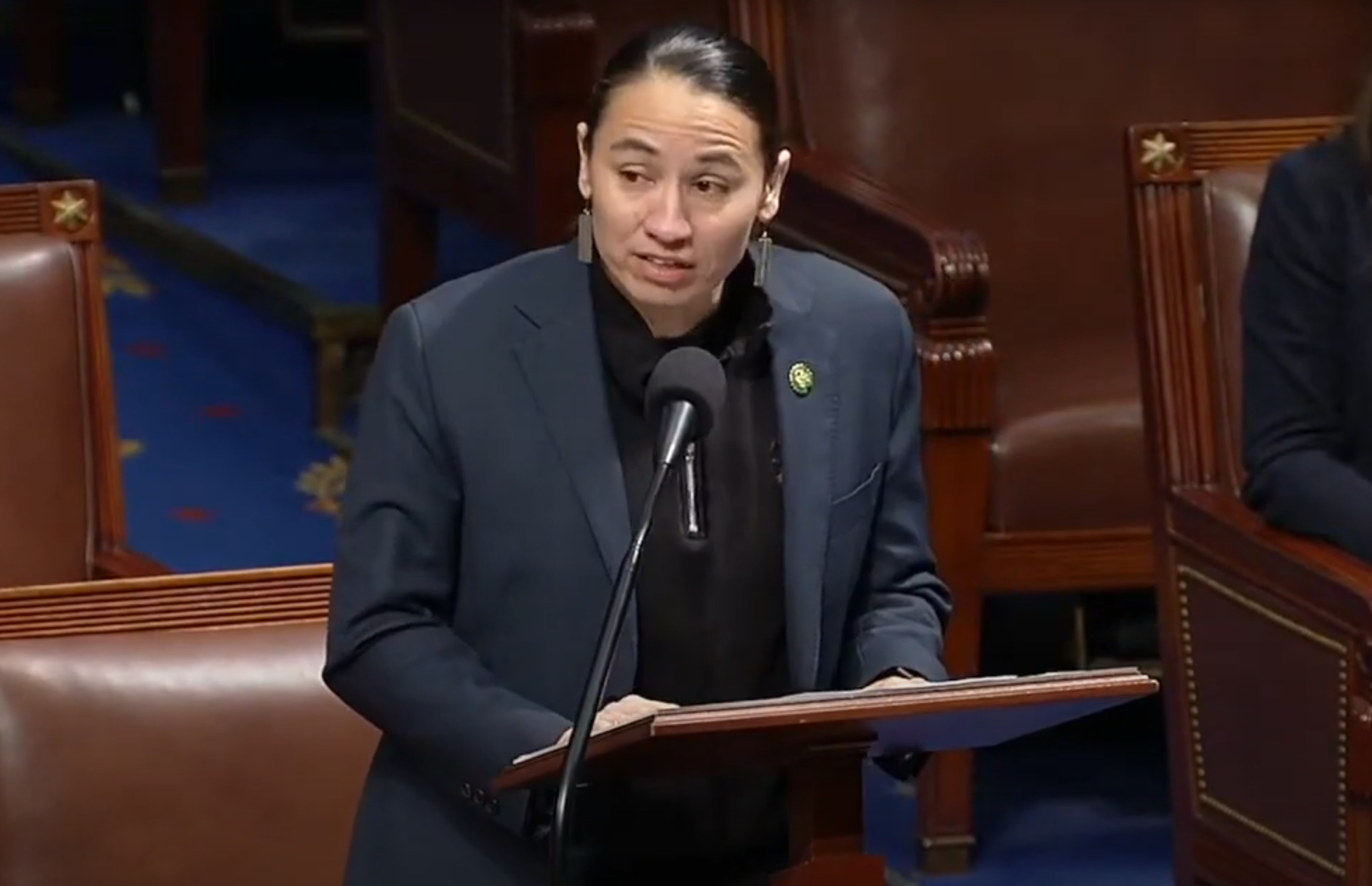
- Details
- By Chez Oxendine
In a rare moment of bipartisanship, the House of Representatives passed a bill today that will strengthen support for Native American entrepreneurs.
The Native American Entrepreneurial Opportunity Act, co-sponsored by Rep. Sharice Davids (D-KS) and Rep. Eli Crane (R-AZ), would pave the way for more funding and expanded services for the Office of Native American Affairs (ONAA) at the Small Business Administration. If passed into law, the legislation would codify the ONAA under federal law and establish a new administrative role for the agency.
Currently, the ONAA primarily provides limited outreach efforts utilizing a small staff, and can be unilaterally disbanded at any time. Codification under the above act would protect the ONAA and expand its services to include field offices, tribal consultations, training and counseling, and the ability to make grants.
In turn, that would enable the ONAA to provide crucial support for Native American entrepreneurs at the heart of the office’s mission, according to Davids, a member of the Ho-Chunk Nation and a former tribal economic development executive.
"Our economy depends on the success of our small businesses. That’s especially true in tribal communities where Native-owned businesses are crucial employers on reservations and their surrounding areas,” Davids said in a statement. “I’m proud that my bill, which breaks down barriers for Native entrepreneurs, passed the House with strong bipartisan support, showing us all that support for Native communities goes beyond party lines.”
Crane echoed the sentiment, saying that codifying the office would improve Native business owners’ ability to “access the SBA’s programs just like anyone else.”
“These communities don’t currently experience adequate access or outreach,” Crane wrote. “It’s essential that they receive specialized expertise to assist them in navigating the unique complexities of running a business on a reservation — complexities mostly created by the federal government. As the representative for over half of Arizona’s tribes, I’m pleased to see the House pass our bill, which would serve tribal citizens of AZ-02 well.”
The bill still needs to pass the Senate, where it advanced out of committee last year, before it can be sent to the White House for President Joe Biden’s signature.
More Stories Like This
Native News Weekly (August 25, 2024): D.C. BriefsUS Presidents in Their Own Words Concerning American Indians
Indigenous Actor Elaine Miles Reports Detention by Alleged ICE Agents
Happy Thanksgiving from Native News Online
Coming Up on Native Bidaské: Behind the Animation: Joey Clift Talks “Pow” and Native Storytelling
Help us tell the stories that could save Native languages and food traditions
At a critical moment for Indian Country, Native News Online is embarking on our most ambitious reporting project yet: "Cultivating Culture," a three-year investigation into two forces shaping Native community survival—food sovereignty and language revitalization.
The devastating impact of COVID-19 accelerated the loss of Native elders and with them, irreplaceable cultural knowledge. Yet across tribal communities, innovative leaders are fighting back, reclaiming traditional food systems and breathing new life into Native languages. These aren't just cultural preservation efforts—they're powerful pathways to community health, healing, and resilience.
Our dedicated reporting team will spend three years documenting these stories through on-the-ground reporting in 18 tribal communities, producing over 200 in-depth stories, 18 podcast episodes, and multimedia content that amplifies Indigenous voices. We'll show policymakers, funders, and allies how cultural restoration directly impacts physical and mental wellness while celebrating successful models of sovereignty and self-determination.
This isn't corporate media parachuting into Indian Country for a quick story. This is sustained, relationship-based journalism by Native reporters who understand these communities. It's "Warrior Journalism"—fearless reporting that serves the 5.5 million readers who depend on us for news that mainstream media often ignores.
We need your help right now. While we've secured partial funding, we're still $450,000 short of our three-year budget. Our immediate goal is $25,000 this month to keep this critical work moving forward—funding reporter salaries, travel to remote communities, photography, and the deep reporting these stories deserve.
Every dollar directly supports Indigenous journalists telling Indigenous stories. Whether it's $5 or $50, your contribution ensures these vital narratives of resilience, innovation, and hope don't disappear into silence.
 The stakes couldn't be higher. Native languages are being lost at an alarming rate. Food insecurity plagues many tribal communities. But solutions are emerging, and these stories need to be told.
The stakes couldn't be higher. Native languages are being lost at an alarming rate. Food insecurity plagues many tribal communities. But solutions are emerging, and these stories need to be told.
Support independent Native journalism. Fund the stories that matter.
Levi Rickert (Potawatomi), Editor & Publisher

